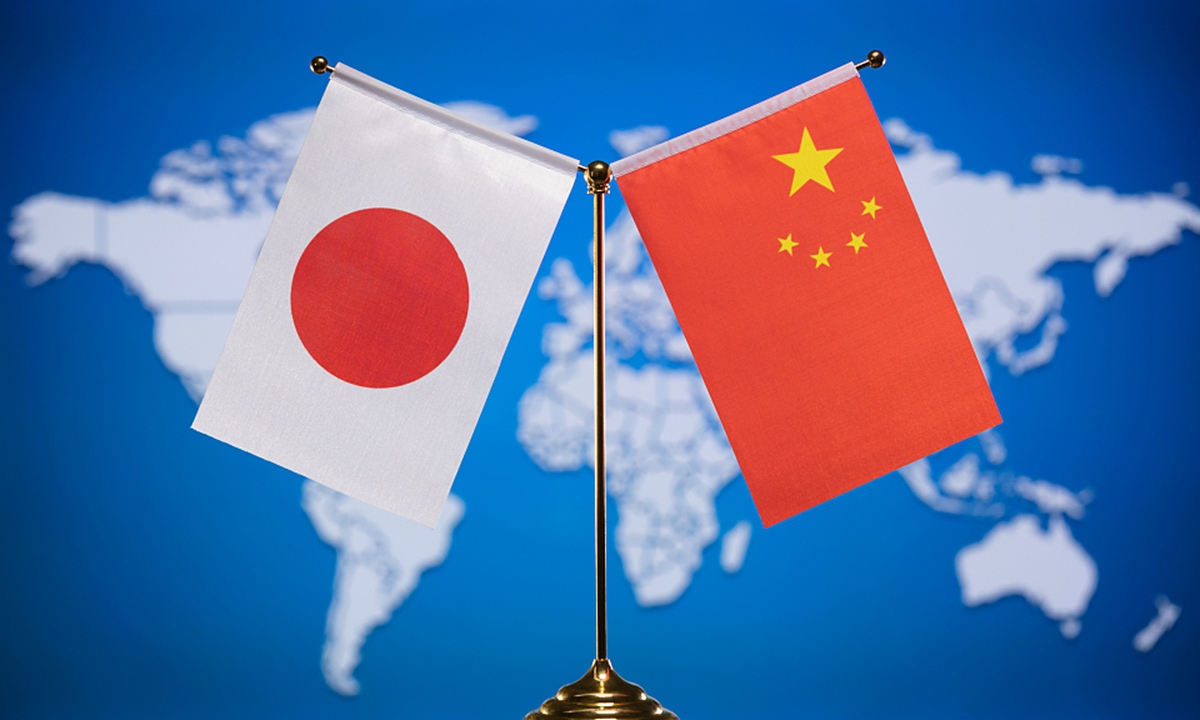Japan’s LDP secretary-general reportedly to visit China; recent frequent engagement a way to expand Tokyo's diplomatic flexibility amid rising US protectionism: expert

China Japan Photo:VCG
Japan's nonpartisan group of lawmakers for friendship with China, led by Liberal Democratic Party (LDP) Secretary-General Hiroshi Moriyama, is reportedly to visit Beijing from Sunday to Tuesday. The visit came shortly after Komeito party leader Tetsuo Saito and his delegation's trip to China from April 22 to 24.
Chinese analysts reached by the Global Times said on Saturday that at a time when US reckless tariff policies are disrupting the global economic order, the frequent engagement between China and Japan, both major global economies, could be seen as an indirect response to the surge in the tide of US unilateralism and protectionism and a way to expand Tokyo's diplomatic flexibility.
The delegation led by Moriyama will have 15 members from the ruling LDP, the leading opposition Constitutional Democratic Party of Japan and others. Arrangements are underway to hold meetings with high-ranking Chinese officials, according to the Jiji Press.
The report also noted that this would be the nonpartisan group's first mission to China since August 2024 and the first since Moriyama assumed leadership in January this year.
On Tuesday, Tetsuo Saito, the chief of Komeito party -- Japan's junior ruling coalition partner, led a delegation to China.
According to the Xinhua News Agency, Wang Huning, a member of the Standing Committee of the Political Bureau of the Communist Party of China (CPC) Central Committee and also chairman of the National Committee of the Chinese People's Political Consultative Conference (CPPCC), met with the delegation in Beijing on Wednesday.
China and Japan should jointly implement the important consensus reached by the leaders of the two countries, adhere to their promises, establish a correct understanding, promote win-win cooperation, and join hands to meet challenges, Wang said.
Saito said the Komeito Party has long adhered to and carried forward the spirit of friendship between Japan and China, and is willing to promote the implementation of the consensus reached by the leaders of the two countries through dialogue and exchanges between the ruling parties.
The Komeito Party stands ready to improve the public opinion foundation of bilateral relations, promote exchanges in business, tourism, localities, youth and other fields, and enable the people of both countries to feel the fruits of the improvement and development of Japan-China ties, Saito added.
According to Jiji Press, former Komeito chief representatives Yamaguchi Natsuo and Ishii Keiichi also plan to travel to China from April 28 to 30.
Recent high-level exchanges between China and Japan sent a signal with implications that extend beyond the bilateral level. Against the backdrop of US' imposition of tariff policies that are disrupting world economic order, the growing engagement between China and Japan, two major global economies, could be seen as part of the broader geopolitical impact triggered by the US-led tariff war, and as an indirect response to the rising tide of US unilateralism and protectionism, Xiang Haoyu, a research fellow at the China Institute of International Studies, told the Global Times.
Tokyo is seeking closer ties with Beijing to strengthen its bargaining position with Washington in tariff negotiation while remaining wary of drawing too close to China and risking tensions with the US, Xiang said.
While Japan has avoided publicly linking its outreach to China with the ongoing tariff tensions, strategic calculations of this nature are evident. Under US' pressure, Japan sees improving ties with China as a way to expand its diplomatic flexibility, reflecting the Ishiba administration's pragmatic approach to foreign policy, Xiang said.
Sun Jiakun, a research fellow at the Institute of Japanese Studies of the Chinese Academy of Social Sciences, said that Japan's recent diplomatic engagement with China serves both as a strategic signal to Beijing and a "practical" response to rising tide of US protectionism.
As a longtime coalition partner in Japan's ruling coalition, the Komeito party has leveraged its position to send friendly signals, downplaying the political stance of the ruling coalition and emphasizing the importance of people-to-people exchanges. This approach to "soft diplomacy" reflects Tokyo's broader attempt to balance between aligning with the US and pursuing strategic autonomy - maintaining economic dialogue with Beijing while avoiding tensions with Washington, Sun said.
While this hedging strategy may offer Japan some short-term time for breathing, Sun noted that achieving lasting stability in China-Japan relations requires Tokyo to move beyond zero-sum thinking and adopt a coherent, long-term strategic approach.

